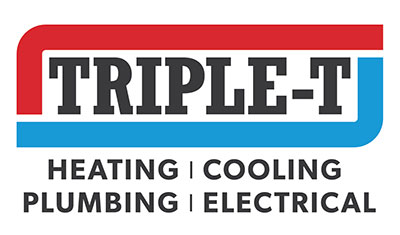HVAC Tips: How to Prevent Overloading Your System
When it’s hot outside, your HVAC system has to work harder than ever to keep your home comfortable. When it can’t keep up with demand, the strain might prove too much, causing your air conditioner to lock up at the worst possible time. Your immediate comfort is at stake, but the real worry is the long-term damage that can occur, leading to costly repairs or a full system replacement. Don’t worry—all you need to do is learn what causes these overloads and how to prevent them.

What Causes an HVAC System to Overload?
Compressor burnout due to overheating is the primary cause of HVAC system overload in the summertime. Several factors can push your HVAC system over the brink, but almost all of them stem from poor installation or owner neglect. Fortunately, that means these issues are preventable! Here are some common HVAC problems to be aware of:
- Overheated condensing unit: The outdoor condensing unit needs room to expel the heat it extracts from your home. Nearby vegetation or dirty condenser coils may compromise airflow, leading to an overheated unit that struggles to cool your home.
- Excessive cooling demand: Cranking down the thermostat in the summer creates an impossible demand on your HVAC system. The resulting overexertion can lead to premature wear and potential system failure.
- Excessive outdoor heat: During heat waves, your HVAC system must work harder than usual to maintain a comfortable indoor temperature. The added strain can lead to overloading, especially if the system is undersized or poorly maintained.
- Loose electrical connections: Vibrations and normal wear can loosen electrical wires over time. This disrupts the power flow to the HVAC system, causing it to operate inefficiently and increasing the risk of a system overload.
- Component failure: Critical components within the HVAC system, such as the blower motor, capacitor, or thermal expansion valve, may fail due to age, wear, or poor maintenance. This failure forces the rest of the system to compensate, often leading to compressor burnout.
- Over or undercharged refrigerant: Proper refrigerant levels are crucial for efficient AC operation. Both overcharging and undercharging can lead to improper pressure and temperatures within the system, causing it to work harder than necessary and risk overloading.
Preventative Tips to Avoid Overloading Your System
Now that you know what can cause your HVAC system to overload, the next step is to prevent it. Here’s how to keep your air conditioner running smoothly and avoid the panic of a mid-summer breakdown:
- Clean or replace the air filter: The HVAC system should never operate without a filter, but you must change it often to maintain airflow and system efficiency. Simply check the filter once a month and replace it when it appears dirty or every three months, whichever comes first.
- Check the condenser unit: Dirt, grass clippings, and other debris can insulate the condenser coil, reducing its ability to dissipate heat. Gently spraying the unit with a garden hose removes these obstructions. While you’re at it, trim the surrounding vegetation back at least 12 inches from the sides of the AC unit. If you erect any visual barriers, keep them 24 inches away from the sides. Leave the top of the unit completely unobstructed.
- Improve home sealing and insulation: Leaks in your home’s outer envelope allow hot air to enter. Enhancing insulation and air-tightness helps maintain the desired indoor temperature with less effort from your HVAC system. This improvement reduces cooling demand during the summer and heating demand in the winter.
- Seal the ductwork: Sealing leaky ductwork prevents conditioned air from being lost to unconditioned spaces, improving HVAC efficiency. This step ensures that all the air your system works to cool or heat reaches its intended destinations throughout your home.
- Set a reasonable temperature: Residential air conditioners are designed to keep homes up to 25 degrees cooler than outside. Rather than pushing the temperature down to 70 degrees F and wearing a sweatshirt, set the thermostat to a moderate 78 degrees F and dress for the season. Then, run ceiling fans to produce a wind chill effect that keeps your home comfortable while reducing the workload on your HVAC system.
- Limit interior heat gain: Close the blinds and curtains over your windows to block out sunlight and avoid using heat-producing appliances like the oven or clothes dryer during the day. These actions reduce the amount of interior heat your AC unit must counteract.
- Install a programmable thermostat: A programmable thermostat optimizes your HVAC system’s operating schedule, ensuring it runs most efficiently when you need it and conserves energy when you’re away or sleeping.
- Keep your vents open: HVAC systems require supply/return air balance to function efficiently. Ensuring all registers are open and unobstructed allows for proper air circulation, preventing your system from overworking itself.
- Install a compressor overload protector: This device protects your system’s compressor from electrical overloads, which can occur during peak usage times, thereby preventing the most costly part of your air conditioner from failing.
- Schedule preventative maintenance: An AC tune-up every spring is your chance to identify and address potential issues before they lead to system overloading. Only trust a licensed, bonded, and insured company for the job.
Keeping Your Cool with Triple T Heating, Cooling, Plumbing & Electrical
If your HVAC system locks up despite your best efforts, turn to Triple T for furnace and AC repair. Our family-run business has been keeping Utah homes comfortable since 1974. Whether your system requires a small fix or a major overhaul, no job is too big or too small for us. Our team is up-to-date with the latest technology, backed by ongoing training and an unwavering commitment to customer satisfaction. The next time you face HVAC troubles, please contact us at 801-798-7711 if you live in Utah County or 435-275-4011 if you’re a Washington County resident. We’ll have your system back up and running in no time!


